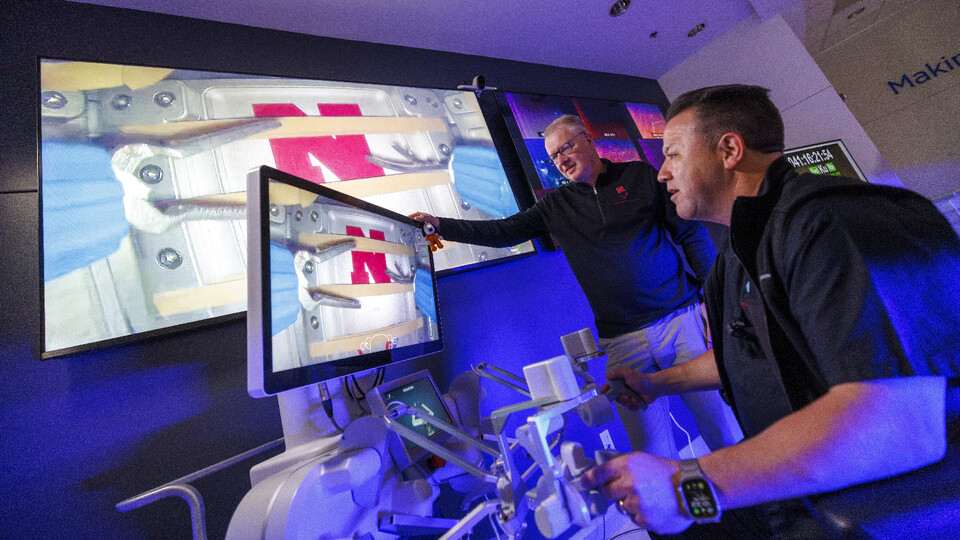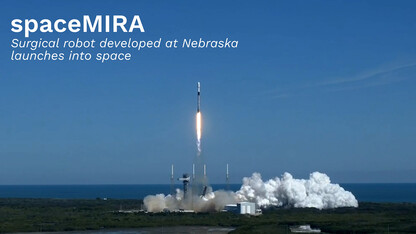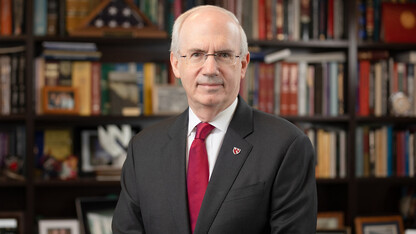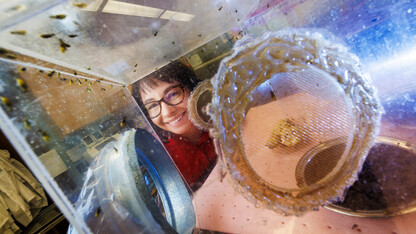· 2 min read
Nebraska-developed surgical robot receives FDA approval

The miniature surgical robot developed at the University of Nebraska–Lincoln continues to make headlines.
After a successful test aboard the International Space Station on Feb. 13, MIRA — Miniaturized In Vivo Robotic Assistant — earned marketing authorization from the U.S. Food and Drug Administration on Feb. 24. The approval, announced by Virtual Incision, a private company created to develop the MIRA robot, clears the way for commercial use for adults undergoing colectomy procedures.
The device was developed under the leadership of UNL’s Shane Farritor, Lederer Professor of Engineering and a Virtual Incision co-founder. It is the world’s first miniaturized robotic-assisted surgery device.
Farritor and Dr. Dmitry Oleynikov, who was a professor of surgery at the University of Nebraska Medical Center, started developing the device in 2001. They formed Virtual Incision in 2006.
Virtual Incision has developed through more than $100 million in venture capital, including a $30 million Series C round of funding earned in the fall.
Learn more about Virtual Incision and its MIRA system.








